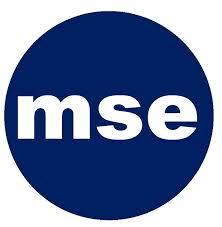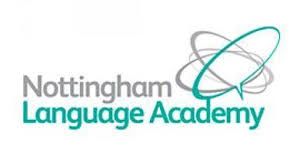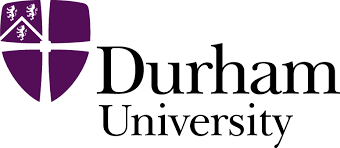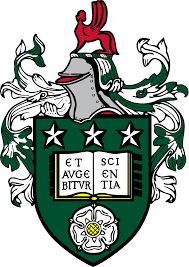
Coaching Techniques and Tools
Course ID: 2507280101069ESH
Course Dates : 28/07/25 Course Duration : 5 Studying Day/s Course Location: London, UK
Language: Bilingual
Course Category: Professional and CPD Training Programs
Course Subcategories: Operations and Process Excellence
Course Certified By: ESHub CPD & LondonUni - Executive Management Training
* Professional Training and CPD Programs
Leading to:
Executive Diploma Certificate
Leading to:
Executive Mini Masters Certificate
Leading to
Executive Masters Certificate
Certification Will Be Issued From :
From London, United Kingdom
Course Fees: £5,120.30
Vat Not Included in the price. VAT may vary depending on the country where the course or workshop is held.
Click to Pay
Date has passed please contact us Sales@e-s-hub.com
Course Information
Introduction
Coaching has emerged as a cornerstone of professional development, leadership enhancement, and organizational success. In an era where adaptability and continuous improvement are paramount, coaching techniques and tools serve as vital instruments for fostering growth, both at the individual and collective levels. This course delves into the science and art of coaching, equipping participants with the skills to guide others toward achieving their full potential. Rooted in established frameworks such as GROW (Goal, Reality, Options, Will) and Transformational Leadership Theory, this program bridges theoretical understanding with practical application, ensuring that participants can immediately integrate their learning into real-world scenarios.
The demand for effective coaching spans industries, from corporate environments to educational institutions and healthcare organizations. Despite its growing recognition, many professionals face challenges in implementing structured coaching methodologies. Common gaps include a lack of clarity on how to align coaching objectives with organizational goals, insufficient knowledge of evidence-based tools, and difficulty in maintaining accountability throughout the coaching process. These shortcomings often result in missed opportunities for personal and professional growth. By addressing these gaps, this course empowers participants to navigate complexities and deliver impactful coaching interventions.
Consider the case of a multinational corporation that struggled with employee engagement until it introduced a formalized coaching program. Managers trained in active listening, goal-setting frameworks, and feedback mechanisms reported a 30% increase in team productivity within six months. Such outcomes underscore the transformative power of coaching when executed effectively. Participants will explore similar case studies, gaining insights into how tailored coaching strategies can drive measurable results. The course also incorporates insights from positive psychology and neuroscience, offering a multidisciplinary perspective on human motivation and behavior change.
For individuals, mastering coaching techniques enhances interpersonal effectiveness, builds trust, and fosters meaningful relationships. Organizations, on the other hand, benefit from improved leadership pipelines, higher retention rates, and a culture of continuous learning. As industries increasingly prioritize emotional intelligence and adaptive leadership, proficiency in coaching becomes not just an asset but a necessity. This course positions participants at the forefront of this shift, enabling them to contribute meaningfully to their teams and workplaces.
The curriculum is designed to address current trends in workplace dynamics, such as remote collaboration and diversity management. For instance, virtual coaching has gained prominence in response to hybrid work models, requiring practitioners to adapt traditional methods to digital platforms. Participants will learn how to leverage technology while preserving the authenticity and impact of coaching interactions. Additionally, the course emphasizes inclusivity, teaching participants to tailor their approaches to diverse audiences, thereby fostering equitable development opportunities.
Ultimately, this program transcends the boundaries of conventional training by focusing on actionable strategies and sustainable outcomes. Whether you are seeking to refine your existing coaching skills or embark on a new career path, this course provides the foundation and advanced tools necessary to excel. Through a blend of interactive workshops, role-playing exercises, and expert-led discussions, participants will emerge equipped to inspire, guide, and transform those they coach.
Objectives
By attending this course, participants will be able to:
Analyze the core principles of effective coaching and their alignment with organizational goals.
Evaluate various coaching models, including GROW, CLEAR, and Solution-Focused Coaching, to determine their suitability for specific contexts.
Design personalized coaching plans that incorporate evidence-based tools and techniques.
Apply active listening and questioning strategies to enhance client engagement and rapport-building.
Implement feedback mechanisms that promote accountability and sustained behavioral change.
Assess the ethical considerations and compliance requirements associated with professional coaching practices.
Synthesize insights from neuroscience and positive psychology to optimize coaching outcomes.
Who Should Attend?
This course is ideal for:
HR managers and talent development specialists seeking to enhance employee performance and retention.
Team leaders and executives aiming to strengthen their leadership capabilities through coaching.
Independent consultants and entrepreneurs looking to expand their service offerings with coaching expertise.
Educators and trainers interested in integrating coaching methodologies into their teaching practices.
These groups will find the course valuable due to its emphasis on practical applications and industry-relevant content. While prior experience in coaching is beneficial, the course is structured to accommodate beginners and intermediate learners, providing foundational knowledge alongside advanced strategies.
Training Method
• Pre-assessment
• Live group instruction
• Use of real-world examples, case studies and exercises
• Interactive participation and discussion
• Power point presentation, LCD and flip chart
• Group activities and tests
• Each participant receives a 7” Tablet containing a copy of the presentation, slides and handouts
• Post-assessment
Program Support
This program is supported by:
* Interactive discussions
* Role-play
* Case studies and highlight the techniques available to the participants.
Daily Agenda
Daily Schedule (Monday to Friday)
- 09:00 AM – 10:30 AM Technical Session 1
- 10:30 AM – 12:00 PM Technical Session 2
- 12:00 PM – 01:00 PM Technical Session 3
- 01:00 PM – 02:00 PM Lunch Break (If Applicable)
- Participants are expected to engage in guided self-study, reading, or personal reflection on the day’s content. This contributes toward the CPD accreditation and deepens conceptual understanding.
- 02:00 PM – 04:00 PM Self-Study & Reflection
Please Note:
- All training sessions are conducted from Monday to Friday, following the standard working week observed in the United Kingdom and European Union. Saturday and Sunday are official weekends and are not counted as part of the course duration.
- Coffee and refreshments are available on a floating basis throughout the morning. Participants may help themselves at their convenience to ensure an uninterrupted learning experience Provided if applicable and subject to course delivery arrangements.
- Lunch Provided if applicable and subject to course delivery arrangements.
Course Outlines
Foundations of Coaching
Understanding the role and impact of coaching in professional settings.
Exploring key coaching models: GROW, CLEAR, and Solution-Focused Coaching.
Identifying the qualities of an effective coach.
Establishing trust and rapport in coaching relationships.
Day 2:
Core Techniques and Tools
Mastering active listening and powerful questioning techniques.
Utilizing diagnostic tools to assess client needs and goals.
Developing SMART goals for coaching engagements.
Integrating feedback loops to track progress and adjust strategies.
Day 3:
Advanced Applications
Adapting coaching techniques for virtual and hybrid environments.
Addressing diversity and inclusion in coaching practices.
Applying neuroscience principles to enhance client motivation.
Managing resistance and overcoming barriers to change.
Day 4:
Ethical Considerations and Compliance
Reviewing ethical guidelines for professional coaching.
Ensuring confidentiality and data protection in coaching sessions.
Navigating legal and compliance requirements in different industries.
Balancing empathy with accountability in coaching relationships.
Day 5:
Implementation and Sustainability
Creating actionable coaching plans for real-world scenarios.
Measuring the ROI of coaching initiatives within organizations.
Building long-term sustainability through mentorship and peer support.
Reflecting on personal growth and future development opportunities.


















































